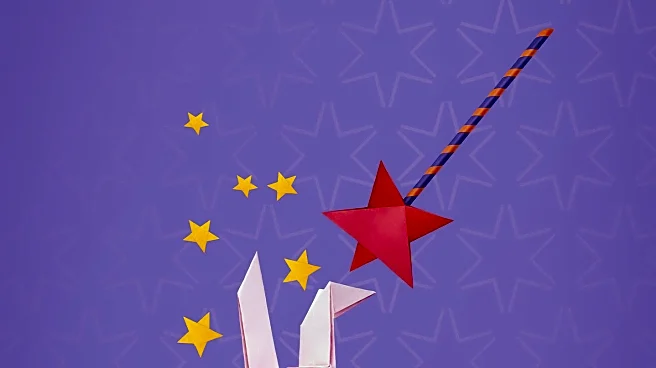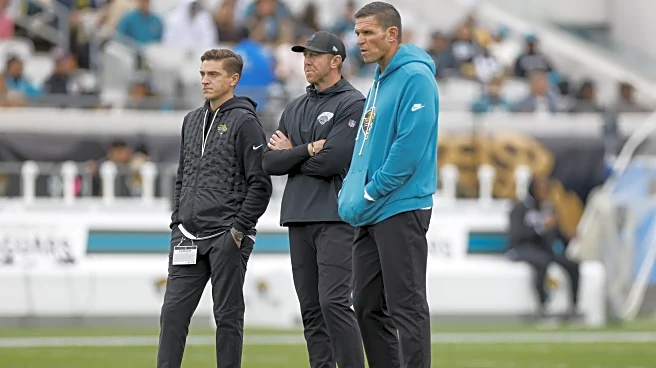What's Happening?
UNICEF's Trick-or-Treat initiative marks its 75th anniversary this year, continuing its mission to support children worldwide. Originating in the late 1940s, the program was conceived by Clyde and Mary
Emma Allison in Philadelphia, who envisioned children collecting donations for UNICEF while trick-or-treating. Over the decades, the initiative has raised approximately $200 million, with contributions from American children helping to provide essential resources to children in need globally. This year's campaign features supermodel Heidi Klum among other celebrity supporters, emphasizing the importance of child welfare and nutrition. The initiative persists despite a reduction in federal foreign aid, highlighting its significance in fostering empathy and global awareness among young participants.
Why It's Important?
The Trick-or-Treat for UNICEF program plays a crucial role in maintaining American support for international aid, especially as federal foreign aid has been scaled back. It serves as a grassroots effort to engage children in philanthropy, teaching them the value of helping others and raising awareness about global issues. The program's longevity and success underscore the American public's commitment to humanitarian efforts, even when governmental support wanes. By involving children in charitable activities, the initiative not only provides immediate aid but also cultivates future generations who may prioritize global welfare in their leadership roles.
What's Next?
As the program enters its 75th year, it faces the challenge of adapting to a changing landscape of international aid. With the dismantling of the U.S. Agency for International Development under the Trump administration, the need for alternative support mechanisms like UNICEF's initiative becomes more pronounced. The program's continued success may inspire other grassroots efforts and encourage broader participation in global aid. Stakeholders, including educators and community leaders, may seek to expand the program's reach and impact, ensuring that it remains a vital part of American charitable culture.
Beyond the Headlines
The Trick-or-Treat for UNICEF initiative highlights the ethical dimension of child involvement in philanthropy, fostering a sense of global citizenship and empathy. It also reflects cultural shifts towards more inclusive and participatory forms of aid, where individuals, regardless of age, can contribute meaningfully to global welfare. The program's endurance suggests a long-term shift in societal values, prioritizing humanitarian efforts and international solidarity over isolationist policies.









